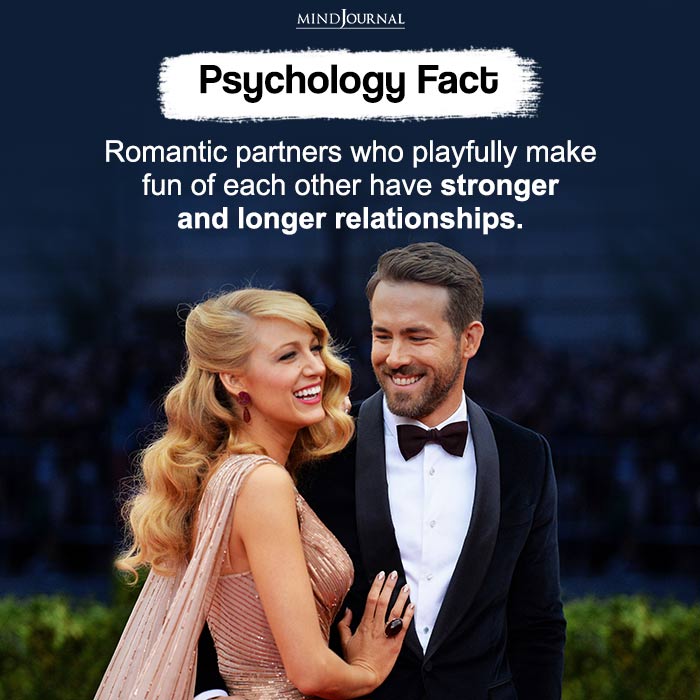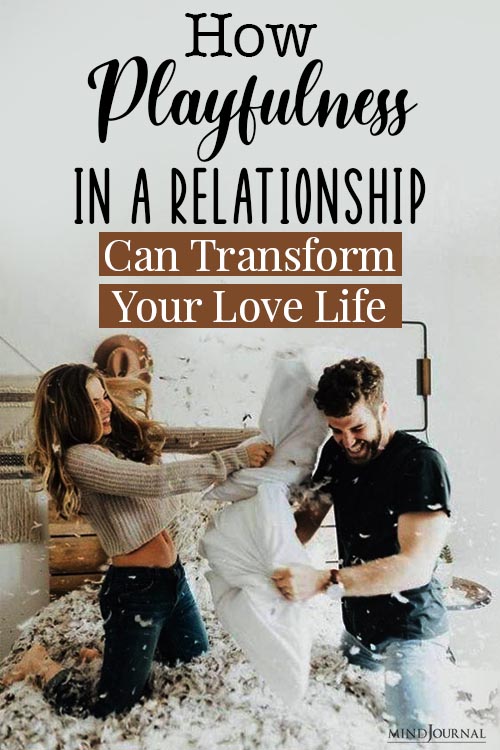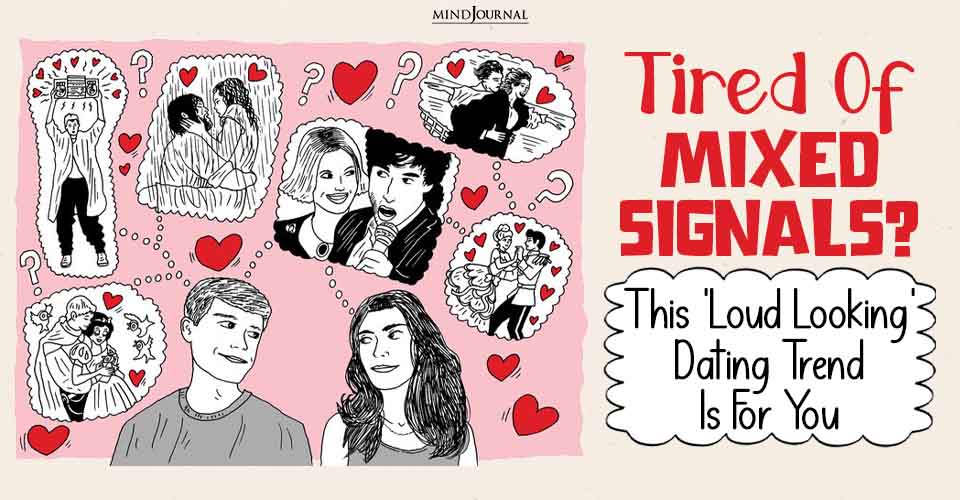Is your relationship feeling stale or distant? Wondering how to reignite the spark? Discover how bringing playfulness into your love life can create deeper connections and renewed passion.
Looking to revive a dying flame? Try the power of play.
Key points
- The four types of relationship playfulness are other-directed, intellectual, whimsical, and lightheartedness.
- Other-directed and intellectual are the most highly predictive of relationship satisfaction.
- All types of playfulness are related to at least some facet of relationship well-being.

Read More Here: 3 Relationship Check In Questions On Love, According To A Psychologist
How Playfulness In A Relationship Can Change Your Love Life
We typically associate playfulness with childhood, a period in our lives characterized by freedom when we have more time, fewer responsibilities, and more active imaginations. Through play, we escaped the confines of our lives and expressed unique aspects of ourselves, often in profoundly creative ways.
Research shows that the benefits of play don’t just help children but also apply to adults. Playfulness in adult romantic relationships connects us to our partners deeply and meaningfully.
Studies show that when couples invite playfulness into their intimate lives, it builds trust, increases intimacy, reduces conflict, and provides a “safe” way of communicating through the production of joint meaning.
Research has also shown that simple, playful day-to-day interactions, such as calling each other by special nicknames, inside jokes, and even gently teasing each other, stabilize relationships by facilitating communication and diffusing tension to help resolve conflict.
Playfulness has also been shown to be a potent aphrodisiac! By being playful, couples feel more at ease experimenting with novel types of sexual experiences, ranging from having sex in an unusual position or place to incorporating accouterments or role play.
Playfulness, it seems, is the perfect antidote to monotony, which can threaten the integrity of any long-term relationship.
Some researchers have even argued that engagement in the consensual practice of bondage, discipline, dominance, and submission (BDSM) is a true expression of playfulness. By assuming different roles and personalities, partners safely express their desires and needs in a way that feels accepting rather than shameful.
However, it’s important to note that not all types of playfulness yield the same benefits. Most types of playfulness are helpful to a relationship, but certain types produce more good than others. It’s helpful, therefore, to differentiate between the different types.
In a study that examined 211 heterosexual couples, researchers examined four different types of playfulness and the impact each type had on the health of the couple’s relationship.
Read More Here: Can TikTok’s ‘Meeting Someone Twice Theory’ Really Lead To Love?
Here were the four types of playfulness identified by the researchers:
Other-directed: As the name implies, other-directed playfulness describes playful interactions between partners that are directly meant for each other, such as words or actions meant to ease tension in social situations or to cheer each other up. Calling each other cute nicknames and gentle teasing would fall into this category.
Light-hearted: This second type of playfulness involves adopting a worldview that values improvisation and seeing life more as a playground as opposed to something full of just serious duties.
Intellectual: This third type includes making clever plays on words, talking through different types of imagined scenarios, and luxuriating in the complexity of issues rather than assuming their simplicity.
Whimsical: This last type includes having a preference for unusual people, situations, or objects and feeling ease in reframing what might seem banal or odd to some in ways where they are perceived as enjoyable.
The authors found that to the extent to which couples expressed more or less of these four types of playfulness, their level of relationship satisfaction varied.
For example, when partners expressed more other-directed playfulness (gently teasing their partner, calling them by a cute name), they were more likely to report higher levels of relationship satisfaction and happiness overall.
Other-directed playfulness also predicted how committed partners were to the future of their relationship and how much respect and fascination they had for their partner.
Interestingly, whereas other-directed playfulness in females predicted higher sexual satisfaction in their male partners, this effect was not vice versa.
It’s important to note that other-directed playfulness does not include the type of teasing or sarcasm partners in dysfunctional relationships occasionally use to bring each other down. That type of behavior is less about playfulness and more about an expression of contempt.
Lighthearted playfulness was unrelated to relationship satisfaction both in men and women. However, it did predict respect and or fascination for one’s partner. Seeing life as more of an adventure than a struggle can bring couples together when there is already a sense of seeing eye to eye.
When partners use lightheartedness to make serious situations seem less serious (“It’s okay that our heat just went out; we can all just snuggle together!”), it can potentially backfire and produce contempt or mistrust.
Partners who expressed intellectual playfulness (inside jokes, play on words, asking playful questions that require reflection) tended to express higher levels of both relationship and sexual satisfaction, and this was true for both men and women.
For some couples, however, although high intellectual playfulness was associated with more relationship satisfaction, it also accompanied a bit of mistrust.
Whimsical playfulness had no overall impact on relationship satisfaction, although it did predict respect and or fascination for one’s partner and an interest in maintaining the relationship’s stability.
Overall, these results suggest that when couples express playfulness in their relationships, they tend to be more happy and satisfied. Playfulness diffuses tension, invites novelty, and promotes connection through shared meaning and a sense of seeing eye to eye.
Certain types of playfulness, particularly those that are other-directed in nature and intellectual, are more robustly related to overall relationship satisfaction overall, however, all facets of playfulness are related to at least some relationship benefit.
Read More Here: 7 Types Of Intimacy To Deepen Your Relationship
References
Baxter, L. A. (1992). Forms and functions of intimate play in personal relationships. Human Communication Research, 18, 336–363.
Proyer, R.T, Brauer, K., Wolf, A., Chick, G. (2019) Adult playfulness and relationship satisfaction: An APIM analysis of romantic couples, Journal of Research in Personality, Volume 79,
Turley, E. L., Monro, S., & King, N. (2017). Adventures of pleasure: Conceptualising consensual bondage, discipline, dominance and submission, and sadism and masochism as a form of adult play. International Journal of Play
“To follow Dr. McNichols’ work, follow her on Instagram and Tik Tok at @Nicole_TheSexProfessor”
Share your thoughts about how play is important in your relationship in the comments below!
Written by Nicole K. McNichols Ph.D.
Originally appeared on: Psychology Today










Leave a Reply